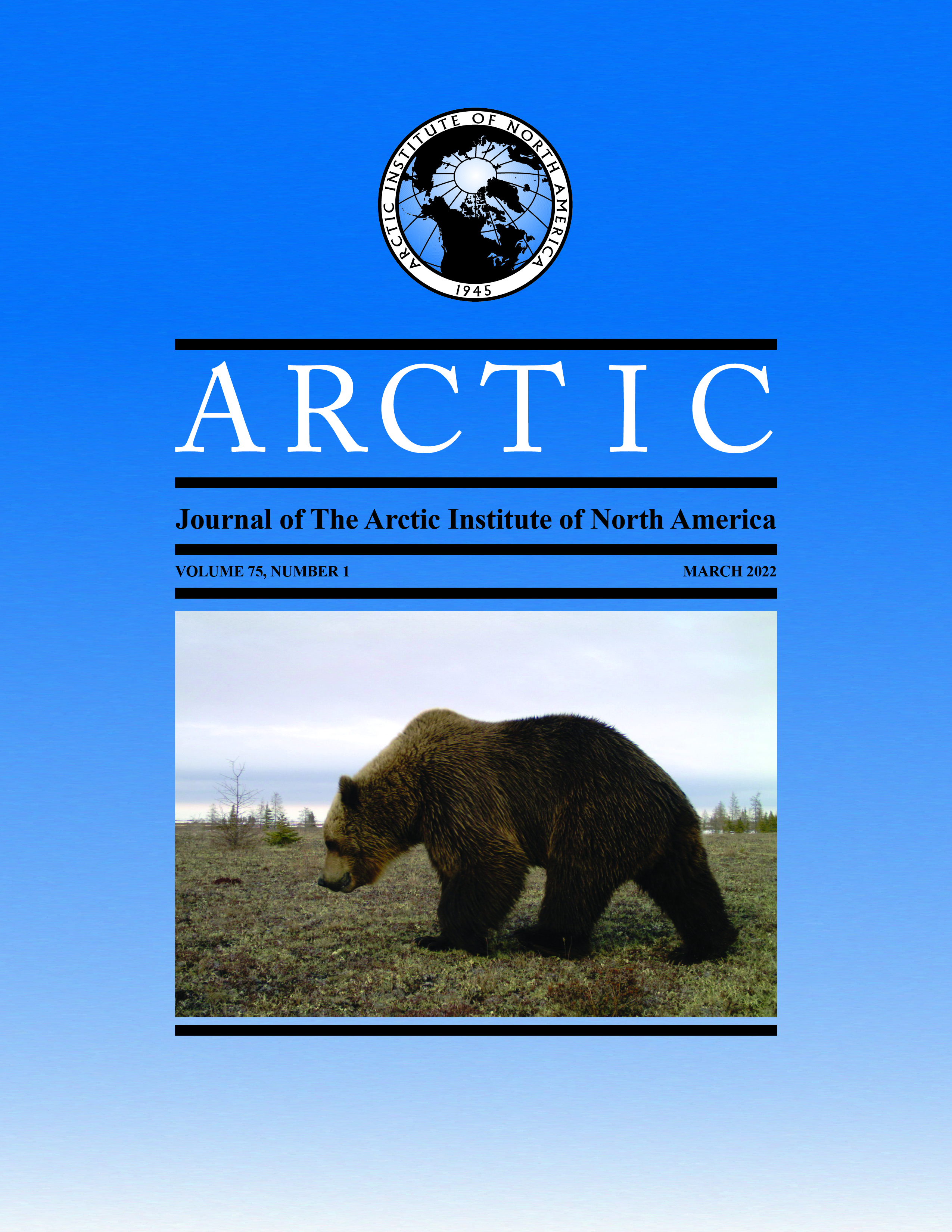Relationships between Rangifer and Indigenous Well-being in the North American Arctic and Subarctic: A Review Based on the Academic Published Literature
DOI:
https://doi.org/10.14430/arctic74870Keywords:
Arctic; culture; food security; human-animal relationships; Indigenous Peoples; livelihoods; Rangifer; scoping review; Subarctic; well-beingAbstract
Many Rangifer tarandus (caribou or reindeer) populations across North America have been declining, posing a variety of challenges for Indigenous communities that depend on the species for physical and cultural sustenance. This article used a scoping review methodology to systematically examine and characterize the nature, extent, and range of articles published in academic journals on the connection between Rangifer and Indigenous well-being in the Arctic and Subarctic regions of North America. Two reviewers independently used eligibility criteria to identify and screen abstracts and titles and then screen full texts of each potentially relevant article. To be included in this review, articles had to discuss linkages between Rangifer and Indigenous well-being in the North American Arctic and Subarctic and be published prior to 2018. A total of 4279 articles were identified and screened for relevance; 58 articles met the inclusion criteria and were analyzed using descriptive quantitative and thematic qualitative methods. Results characterized the depth and diversity of what we know about Rangifer for Indigenous culture, food security, livelihoods, psychological well-being, and social connections across North America in the academic literature. Several gaps were identified. Little is known about the psychological ties between Rangifer and Indigenous Peoples and the influence of Rangifer-related change on Indigenous well-being and adaptive capacity. We urgently need to know more about the emotional connections that arise from Indigenous-Rangifer linkages, the effectiveness of adaptive strategies, and the intergenerational implications of Rangifer-related change. Further, enhanced inclusion of Indigenous Peoples in the production of knowledge on this topic is fundamental to the future of understanding Indigenous-Rangifer relationships.
Downloads
Published
Issue
Section
License
Copyright (c) 2022 ARCTIC

This work is licensed under a Creative Commons Attribution 4.0 International License.


